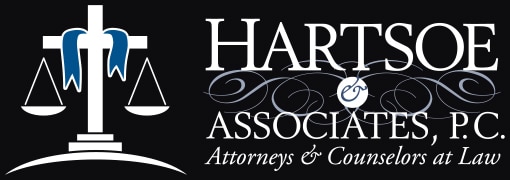
Offers in Compromise Tax Attorneys Serving Winston-Salem & Greensboro
Piedmont Triad tax debt relief law firm with decades of experience
An offer in compromise, also called an OIC, is a method of settling tax debt with state or federal tax authorities. In cases where an individual or business owes a significant amount of back taxes, they may be unable to pay these debts – which is where an attorney can step in and help. Tax liabilities do not go away and can even result in criminal penalties if not dealt with promptly.
The qualified tax debt attorneys at Hartsoe & Associates, P.C. have been assisting clients just like you for more than 25 years. We will confidentially analyze your situation and design strategic solutions for debt relief, negotiating with tax authorities on your behalf. Our goal is to get you out of debt in the most efficient way possible. Call us today.
What is a North Carolina offer in compromise?
An offer in compromise is when the Secretary of the North Carolina Department of Revenue (NCDOR) is authorized to “accept full settlement of a liability for a lesser amount than is due when in his or her opinion it is in the best interest of the State.” If eligible for an OIC, a taxpayer can pay off tax debts in one lump sum, even if it is less than the original debt.
Am I eligible for an offer in compromise?
Before you or your attorney can negotiate an OIC with tax authorities, first you must qualify. The Internal Revenue Service (IRS) and NCDOR review three specific points when determining eligibility:
- Doubt as to collectability. Is it highly unlikely that the IRS will be able to collect the full amount of the tax debt?
- Doubt as to liability. Is there valid reason to believe the tax debt assessed to you is incorrect?
- Effective tax administration. Are there extenuating circumstances that would make collection of the full amount an economic hardship or unfair?
Generally, tax authorities will not consider an OIC unless the offer is more than or equal to the debt’s reasonable collection potential (RCP). The RCP is how the IRS determines your ability to pay the tax debt. Reasonable collection potential includes the value of your assets, like your bank accounts, property, and vehicles. RCP can also include your future income, minus basic living expenses.
The requirements for the OIC program are complicated, and if an application is not prepared properly, it could be rejected. The Winston-Salem attorneys at Hartsoe & Associates can determine the strength of your case and help prepare your application.
What are the payment options for an OIC?
A successful offer in compromise program allows two payment options – a lump sum cash amount or an installment plan. Offers in compromise forms are found on IRS.gov.
- Lump sum cash offer. A taxpayer can pay his/her offer amount in a lump sum, which can be paid in five or fewer installments within five months of the OIC’s acceptance. When making a lump sum cash offer, you must include a non-refundable payment equal to 20 percent of the offer amount. This payment is applied to your tax debt whether or not your OIC is accepted.
- Payment plan offer. A taxpayer can also offer periodic payments in the form of six or more monthly installments within 24 months of the OIC’s acceptance. When making a payment plan offer, you must include the first proposed installment payment, which is also non-refundable. This payment is applied to your tax bill whether or not your OIC is accepted.
Once an OIC is accepted, no money will be returned. Our Greensboro tax attorneys can explain this in more detail.
How long does the OIC process take?
The offer in compromise process can be a lengthy one, often taking from six months to a year or even longer. However, if the IRS fails to either accept or reject an OIC within a two-year period, it is considered accepted. While your OIC is pending, the IRS will not require payments on the old debts, but any current and estimated tax payments are still due, including personal taxes and employment taxes. If you fail to do so, the IRS will almost certainly reject your pending OIC and right to appeal. You will also lose your original payment in the event you wish to apply for a new OIC.
Will the IRS garnish my wages while my OIC is pending?
Once the IRS receives your offer in compromise, wage garnishment must stop. However, any collection actions currently in place may continue. Our tax debt collection attorneys will work to halt collection efforts against you.
What happens when an OIC is accepted?
When the IRS accepts an OIC, it is a formal settlement that includes relevant outstanding taxes, penalties, and interest, provided you follow these conditions:
- Agree the IRS has the right to keep all tax refunds up to and including the year your OIC is accepted
- File tax returns and pay outstanding debts on time for the next five years
- Pay all installments as specified in the acceptance letter
- Waive your right to contest liability for tax debt included in the offer
Missing an installment or violating the agreement can cause the IRS to invalidate your agreement, forcing you to start the entire OIC process again. Sometimes the IRS will put a lien on your home or property to ensure you meet the conditions of your OIC. The tax lawyers at Hartsoe & Associates can explain the terms of this agreement in detail.
How can a tax attorney help me with an offer in compromise?
OICs can be quite similar to an audit on your income and assets. You will need to provide documentation like pay stubs, bank statements, vehicle registrations, and much more. The IRS will not just take your word that you qualify for this type of debt repayment – you have to prove it. Our attorneys can help ensure you are eligible for an OIC and determine the right payment amount so you do not overpay. Our goal is to help you save money, and we have years of experience helping clients do just that.
Piedmont Triad offers in compromise attorneys
When you are facing significant tax debt, Hartsoe & Associates, P.C. can help you make sense of it all. Our legal team consults with individuals and businesses to design strategic and customized tax debt solutions, negotiating with the NCDOR and IRS on your behalf so you can focus on moving forward with a clean slate. We serve clients in Winston-Salem and Greensboro, as well as the Piedmont Triad. To schedule a consultation with an experienced attorney, please call 336-725-1985 or fill out our contact form.
